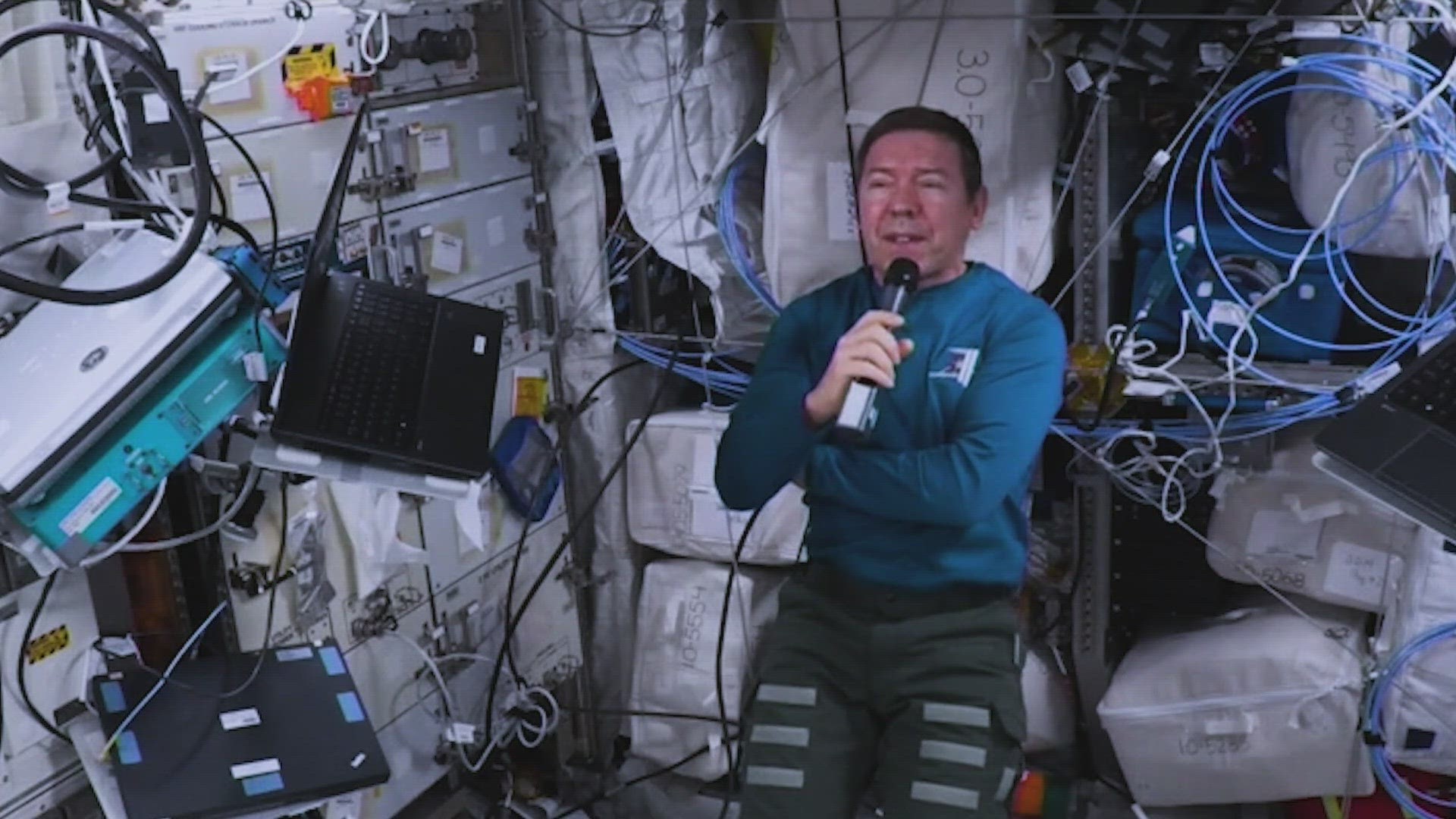SEATTLE — We recently had the chance to talk with astronaut Michael Barratt on the record from the International Space Station.
Barratt is the pilot of NASA's SpaceX crew and a specialist in aerospace medicine.
Born in Camas, Washington, Barratt's journey to space began in the Pacific Northwest.
Joyce Taylor: How did you become an astronaut?
Barratt: I had a lot of broad interests. I think career anxiety, if you will, is kind of a common trait amongst us. And growing up in kind of a farming community. There are lots of stars, I love astronomy, I build telescopes, we are close to the ocean, I kind of liked oceanography and marine biology. And long story short, I went to the University of Washington and just found abundant opportunity to kind of explore every passion I had. If you try to put all your passions together in one place. There's no other place like nasa, where you bring all those skills to bear and you use them all the time.
Taylor: You arrived in space, the first time in 2009 on the Soyuz, and then the space shuttle, and then SpaceX Dragon. So how do those three compare?
Barratt: It’s a bit of an apples-and-oranges comparison. I think the main thing is just the generational difference between the spacecraft SpaceX, in particular the Dragon, it's basically a new generation spacecraft.
Taylor: We've all seen pictures from space looking back at Earth. But can you describe for us what it's really like to see it from your perspective?
Barratt: I’ll tell you that I'm always at the window when we're flying over the Pacific Northwest. It is pretty overwhelming. When you look at that, that incredible blue planet with white swirly clouds and earth down there just kind of hanging out in the blackness of space you, you get a strong sense of beauty, you get a strong sense of fragility, and that you really need to take care of it. Something I wish everybody could see.
Taylor: Can you describe for us what it's like to be at zero gravity, how your body adjusts? Your physician, you work with aerospace medicine? How do you make those adjustments?
Barratt:That is my passion really how the human adapts and we happen to be extremely adaptable creatures. Zero gravity challenges that in an incredibly unique way.
But to sum it up, you will lose maybe 15% of your blood volume, your bones and muscles will start losing mass and integrity, your heart changes shape, the diaphragm moves up towards the head, the the lungs change shape a little bit and actually get a little bit more efficient. There's a lot of changes in how blood flow is regulated metabolism, how the kidney functions, the immune system, all of these changes happen. And after a couple weeks, two or three weeks, you actually start feeling pretty good.
Taylor: What is it like to be living up there in such a confined space?
Barratt: The space may be confined but it's not all that small. We have a permanent group of seven, we're not bumping into each other. It's actually quite a bit of room and that's not so much of a problem.
Taylor: What is the longest you've ever spent in space? How long is this trip?
Barratt: My first flight was 199 days. And I'll just tell you that even though I have a big family, we're very attached, I didn't want to come home. On the last day, we're scheduled for a six-month tour. And that can always be plus or minus a little bit. And at the end of six months, I'll probably be bargaining with all sorts of people to try to extend up here a little bit.
Taylor: I know you're doing a lot of work up there that will eventually get man back to the moon and eventually to Mars. We so appreciate you taking the time with us.
Barratt: My pleasure to talk to you. Thanks so much.
Barratt is the father of five, with three grandkids. He said he’s constantly connected to Earth through the internet, satellite systems, the telephone and email.
Seeing the solar eclipses has always been on his bucket list. He’s also looking forward to a couple of spacewalks planned for May and June.

